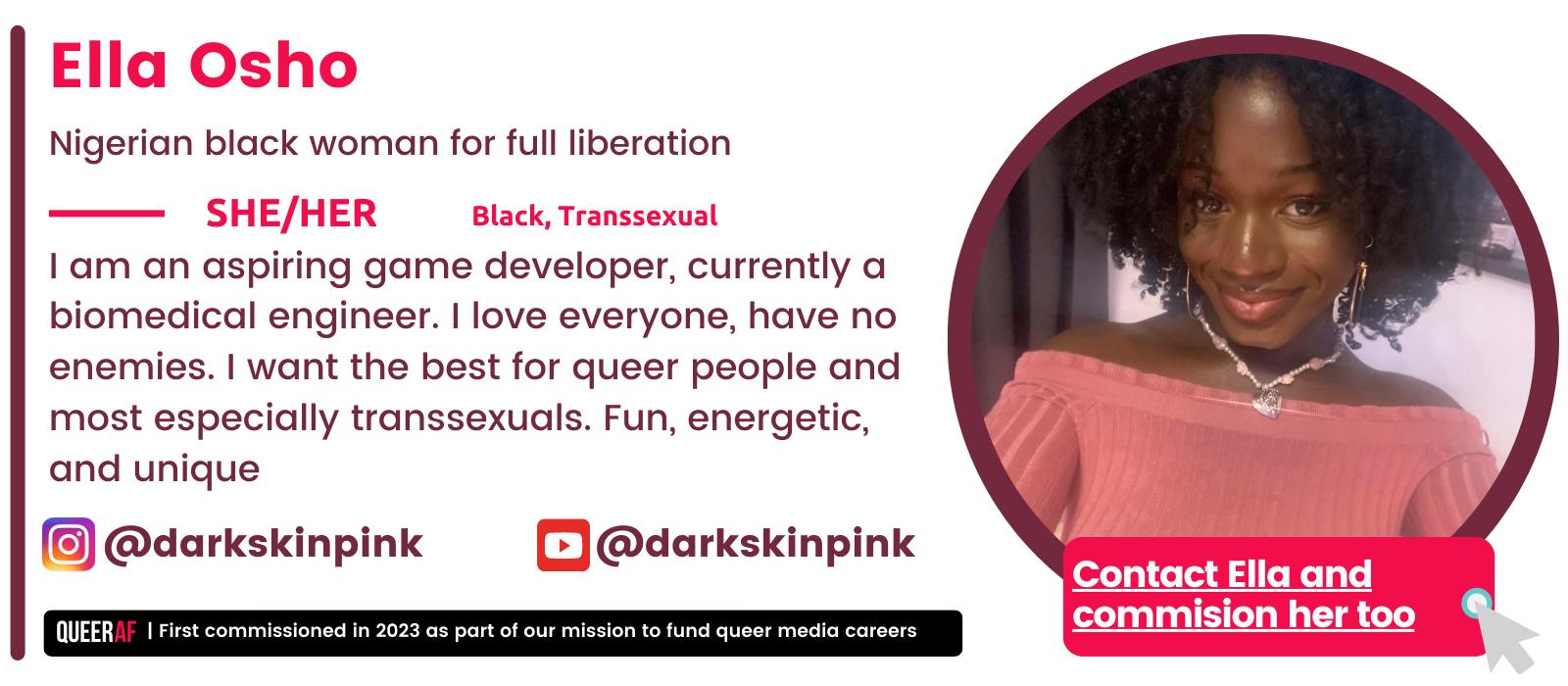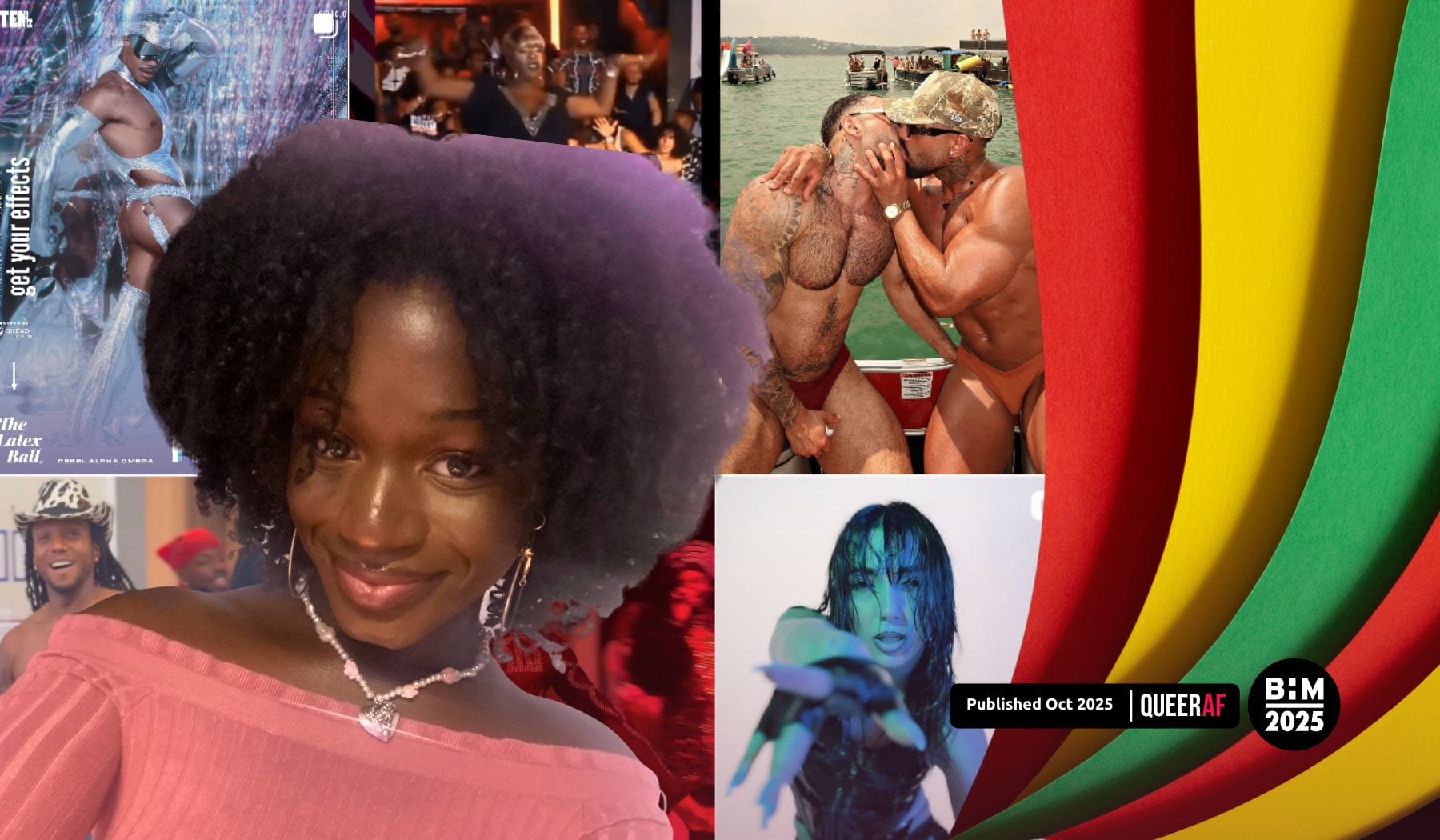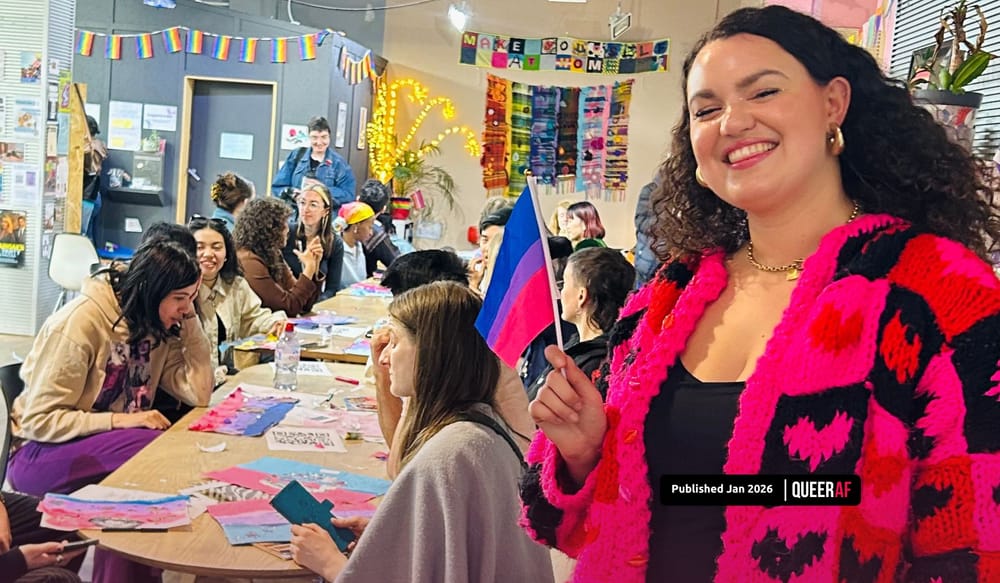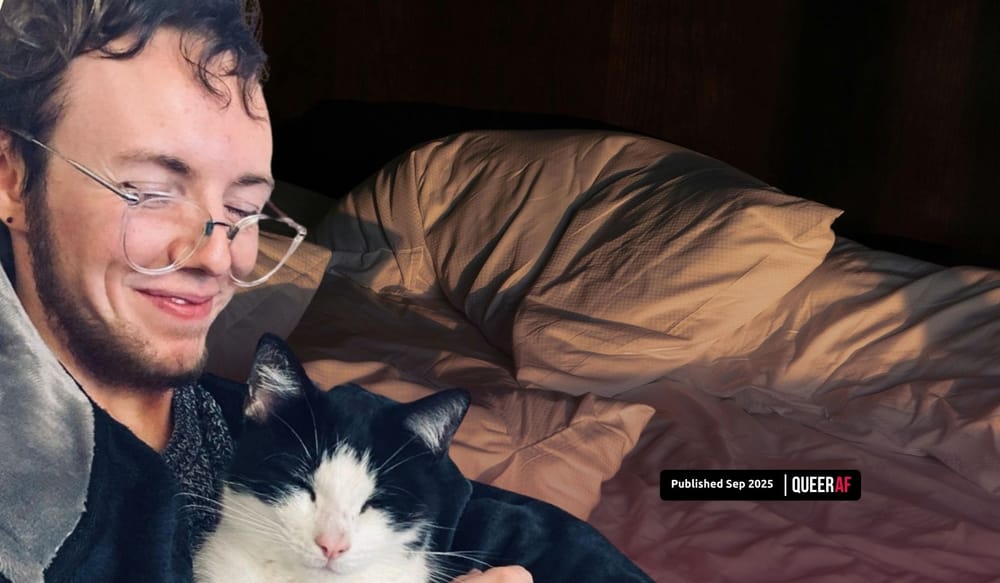
In 2025, most queer people—especially Gen Z—don’t just scroll social media for fun. Our feeds are where we find community, learn our history, and document our lives.
Every meme, post, and story we share becomes part of a living queer archive. And for groups too often erased from official records, that kind of self-documentation is revolutionary.
Queer people have always found creative ways to communicate and protect each other when mainstream systems ignored us.
In mid-20th century Britain, gay men used Polari, a secret slang mixing theatre lingo, Italian, and Yiddish, to speak freely in public without outing themselves.
During the AIDS epidemic, when governments and media refused to tell the truth, queer networks became literal lifelines by handing out flyers about safe sex, sharing underground zines, and building community clinics.
More recently, information about PrEP, HIV testing, and accessing hormones has spread the same way: peer-to-peer, through DMs, hashtags, and group chats. Every era has had its code, its platform, or its rhythm of survival.
Enter TENz Magazine,; a digital media hub that takes that tradition and runs with it. It’s witty, bold, and deeply informed by Black queer culture. It shares ballroom clips and memes one minute, and urgent news the next.
Amid news that New York police were using Sniffies and Grindr to entrap gay men, TENz posted “Cruisers Beware: Entrapment Is Back”, a humorous but serious warning about renewed police targeting of queer men in online and physical spaces. The comments were funny, yes, but the purpose was deadly serious: to alert, protect, and connect.
What makes TENz so powerful isn’t just what it says, it’s how it says it. The tone feels like a group chat: unapologetically Black, queer, and fluent in the language of the internet. It’s humor as shorthand, memes as headlines and shade as critique. But that tone isn’t about flippancy - it’s about strategy.
Whether consciously or not, that tone disarms and engages people who might tune out from traditional reporting. It makes hard information shareable. In a world where attention spans are shrinking and distrust in media is growing, TENz shows that care and credibility can coexist with play.
This is what other media—especially queer media—can learn from TENz. It’s not just representation; it’s self-determined communication.
When Black queer people lead the storytelling, the language shifts, the priorities shift, and so does the audience’s sense of belonging. It’s the difference between being spoken about and being spoken to. TENz proves that cultural fluency is a form of journalistic ethics.
In an era when algorithms erase timelines and platforms decide which stories matter, archiving ourselves becomes a radical act. TENz isn’t simply “giving the gurls something to talk about.”
It’s ensuring that when someone tries to trace our history decades from now, they’ll find proof. Not just of our struggle, but of our laughter, our language, and our love.
Because when we tell our own stories, we don’t just document queer life. We protect it.

More than a month
At QueerAF, we're obsessed with journalism and storytelling that puts lived experience in the driving seat.
So we're thrilled to be able to bring you Phil Samba's perspective - and those of several other Black queer creatives - this Black History Month 2025.
As a small indie publisher, we've done this series on a shoe-string budget. Everyone's been paid, and received mentoring and support - but imagine what we could do with more resources.
This month, our ask to you is this: if you learn, grow from or enjoy our UK Black History Month series, consider investing in it.
Help us fund even more Black, queer and trans creatives to tell stories - all year around.










